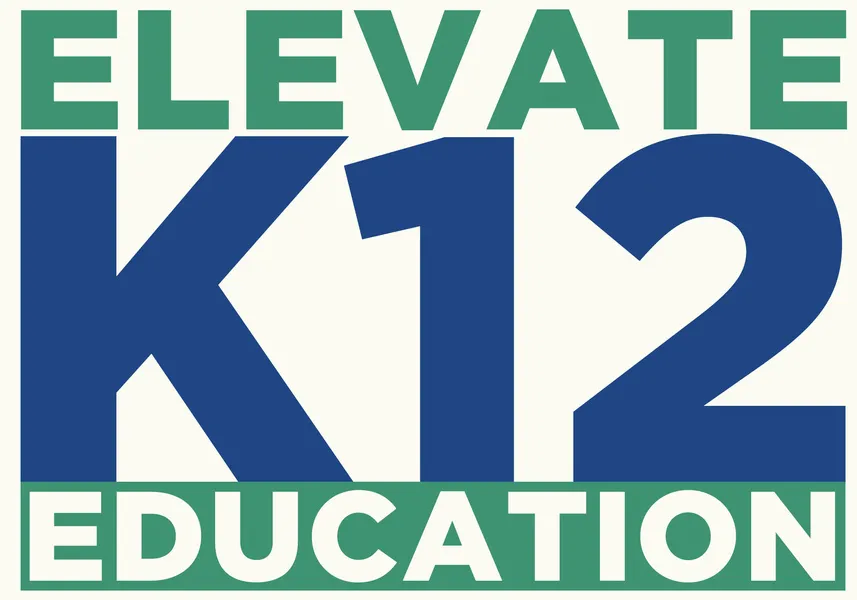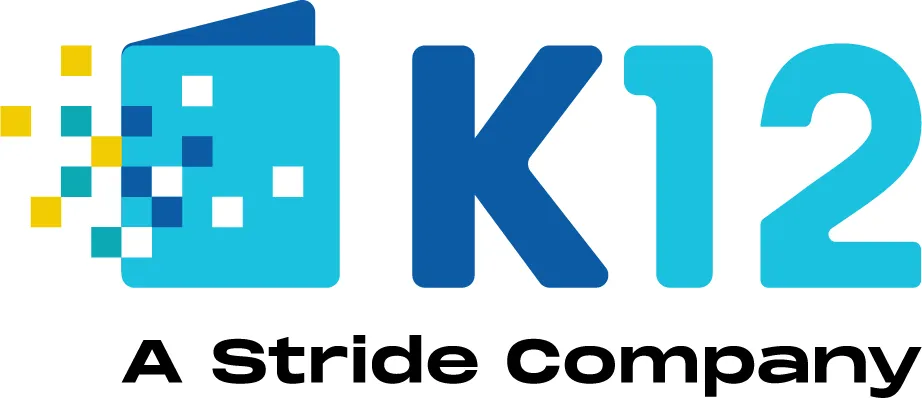For Education Leaders
Get proven strategies and expert analysis from the host of the Learning Can't Wait podcast, delivered straight to your inbox.
High-Dosage Tutoring
Accelerate Growth with Proven Tutoring
- Frequent, data-driven personalized sessions
- Certified, virtual, budget-friendly
- Boosts grades & closes gaps fast
Tutor with a Degree: Is It Necessary? How to Decide

When searching for academic support for your child, the options can feel overwhelming. Private tutors, learning centers, online platforms each offering different qualifications and experiences. A question parents often ask is: do I need a tutor with a degree? This stems from a desire to provide the best support for your child's education.
It's a valid concern. You're investing money and trust that this person will positively impact your child's academic future. However, the answer isn't straightforward. The right choice depends on several unique factors.
This guide will help you navigate this important decision. We'll explore when a degree is essential, when other qualifications suffice, and provide a framework to determine the best fit for your child's needs and goals.
For the best online tutoring selection see iTutor. All of their teachers are certified with 15+ years of experience in the classroom and at least a Master’s Degree.
Why does the degree question come up so frequently?
The question of whether a tutor needs a degree reflects underlying concerns parents have when seeking educational support:
- Concern 1: Ensuring Quality & Expertise: A degree, especially in education or a specific subject area, suggests formal training in subject matter and pedagogy (the method and practice of teaching). Parents associate these credentials with better instruction quality and a deeper understanding of student learning.
- Concern 2: Navigating a Varied Marketplace. The tutoring landscape ranges from college students earning extra money to retired professors with decades of experience. With such variety, a degree is a clear qualification to help parents make comparisons.
- Concern 3: Cost vs. Value. Tutors with advanced degrees typically charge more. Parents question whether this cost translates to better outcomes for their child or if they're paying for credentials that do not enhance the tutoring experience.
Understanding these concerns provides valuable context for making an informed decision about the best tutor for your child's needs.
The Advantages: When a Tutor's Degree Is Important
In some situations, a tutor with a formal degree (especially in education or the specific subject) offers advantages that can greatly impact learning outcomes:
- Deep Subject Matter Expertise: A degree in the field indicates comprehensive knowledge beyond what's typically required to succeed in advanced subjects like AP Calculus, Physics, or upper-level foreign languages.
- Understanding of Pedagogy: Teachers with education degrees are trained not just in what to teach but how to teach it. They understand learning theories, curriculum sequencing, and how to adapt instructional approaches for different styles.
- Experience with Curriculum Standards: Degreed educators, especially with teaching certification, are familiar with state and district standards. This helps them align tutoring with classroom expectations and prepare students for assessments.
- Training in Assessment: Education prepares teachers to identify learning gaps through formal and informal assessments, pinpointing where a student is struggling and developing specific interventions.
- Specialized Knowledge: Tutors with Special Education degrees understand how to support students with IEPs (Individualized Education Programs) or specific learning disabilities. Their training is essential for those with dyslexia, ADHD, or other learning differences.
A tutor with a relevant degree provides a strong foundation for complex subjects, specific learning needs, or close alignment with school curricula. This overlaps with the qualifications of a certified tutor, ensuring subject knowledge and teaching expertise.
Beyond the Parchment: When Other Qualifications Stand Out
While degrees provide valuable credentials, they aren't the only indicator of an effective tutor. Other qualifications and personal attributes can be equally or more important:
- Lower Grade Levels/Foundational Skills: For elementary or middle school homework help, basic reading practice, or reinforcing foundational math concepts, a tutor's patience, rapport-building, and skill in explaining concepts simply can outweigh formal credentials. A college education student can connect well with your third-grader struggling with multiplication.
- Specific Skill Tutoring: Some effective test prep tutors excel due to specialized training in test strategies and extensive practice with exams like the SAT or ACT, not necessarily because of broad academic degrees. Their expertise in test-taking techniques can be more valuable than general teaching knowledge.
- Subject Matter Passion & Experience: An enthusiastic biology major who communicates well is perfect for helping your high schooler with the subject, even without a teaching degree. Similarly, a professional writer provides exceptional English tutoring based on real-world expertise rather than academic credentials.
- Personality and Rapport: A qualified tutor won't be effective if they can't connect with your child. A tutor who builds confidence, makes learning engaging, and understands your child's needs achieves better results than a highly credentialed but poorly matched instructor.
- Verified Experience: A tutor with years of success stories and strong references offers more value than a recently graduated teacher with limited experience, especially if they specialize in addressing your child's specific challenges.
The "best" tutor depends on balancing qualifications with your student's needs. How do you determine what is right for your situation?
How to Know: Important Factors for YOUR Decision
Whether a degree is necessary depends on factors specific to your child and their learning goals. Use this framework to guide your choice:
Factor 1: Student's Age and Grade Level
Tutors focus on building foundational skills, reinforcing classroom learning, and developing positive habits for K-5 students. A tutor's ability to engage, encourage, and explain concepts simply often outweighs the importance of advanced credentials. A college student or experienced homework helper is suitable.
As students progress to middle and high school, subject complexity increases. By high school, especially for advanced courses (AP, IB, Honors), subject-specific expertise becomes crucial. A tutor with a mathematics degree will better serve a student in AP Calculus than someone who performed well in the course years ago.
Factor 2: Subject Complexity
The complexity of the subject matter significantly impacts the importance of a tutor's credentials. For basic reading practice, elementary math, or general homework supervision, a degree is less essential than patience and clear communication.
A tutor with deep subject knowledge (usually from a relevant degree) can make a substantial difference for subjects like advanced mathematics, chemistry, physics, foreign languages, or in-depth literary analysis. They understand not just the "what" but the "why" behind complex concepts and can address sophisticated questions.
Factor 3: Specific Learning Needs
A specialized tutor becomes valuable if your child has learning differences, ADHD, or an IEP/504 plan. Tutors with Special Education degrees understand specific challenges and effective strategies.
For students with specific needs, find tutors experienced in specialized support for diverse learners. Their knowledge of accommodations, modifications, and differentiated instruction techniques can improve learning outcomes.
Factor 4: Tutoring Goals
Your tutoring goals should influence your requirements for a tutor's qualifications. Consider:
- If you need homework help or general academic support, a qualified college student might be sufficient.
- If you need a content review for credit recovery or catching up after an absence, a subject-matter expert is essential.
- A trained professional educator provides better organization and advancement for intensive academic support like high dosage tutoring.
- For test prep, find tutors with specific experience in that exam, regardless of their degree.
Someone with strong subject passion and knowledge is ideal for enrichment beyond the curriculum.
Factor 5: Your Budget
Tutors with advanced degrees or certifications command higher rates. Determine your budget and consider the desired qualifications against affordability.
If a skilled undergraduate or an experienced tutor without a formal degree meets your criteria, they can be a good value choice. For complex needs or advanced subjects, investing in higher qualifications often leads to more efficient, effective learning.
Essential Qualities for Any Effective Tutor (Degree or Not)
Certain universal qualities make a tutor effective. Look for these characteristics regardless of whether your tutor has a Ph.D. or is pursuing a bachelor's degree:
- Strong Communication Skills: The ability to explain concepts clearly, at the right level, and in multiple ways. Good tutors listen actively to understand student questions and concerns.
- Patience and Empathy: Learning can be frustrating. Effective tutors remain patient, empathetic, and encouraging even when progress is gradual.
- Adaptability: Students learn differently. Great tutors adjust their teaching methods to match the student's learning style, rather than imposing one approach.
- Passion for the Subject & Teaching: Tutors who love their subject and enjoy teaching inspire similar interest in their students.
- Reliability and Professionalism: Punctuality, preparedness, and clear communication with students and parents foster a stable learning environment.
- Safety Checks: Verified background checks offer important reassurance for parents for in-person tutoring with minors.
Vetting Your Options: How to Evaluate Potential Tutors
Once you've determined the most important qualifications for your situation, use these steps to assess potential tutors:
- Review Qualifications: Ask about degrees, certifications, teaching experience, and subject expertise directly related to your needs. For specialized situations (like learning disabilities or advanced subjects), ask for verification of relevant training.
- Conduct an interview to assess communication style, teaching philosophy, and personality fit. Ask scenario-based questions such as "How would you help a student struggling with reading comprehension?" or "What approaches do you use when a student becomes frustrated?"
- Check References: Speaking with previous clients can provide insights into the tutor's effectiveness, reliability, and teaching style. Ask about circumstances similar to yours.
- Consider a Trial Session: Many tutors offer introductory sessions, allowing you to observe their teaching approach and your child's response before making a commitment.
- Discuss Goals Clearly: Ensure the tutor understands your tutoring objectives and confirm they have strategies to meet them.
Conclusion: Making the Right Choice for Your Child
Whether you need a tutor with a degree depends on your specific circumstances, your child's age, the subject's complexity, your learning goals, and any special requirements. A degree can indicate valuable training and expertise, but it's just one factor in a broader decision-making process.
Look beyond credentials to consider experience, teaching style, rapport with your child, and desired outcomes. Weigh these factors and thoroughly vet potential tutors to find the right academic support for your child to build confidence, develop skills, and achieve educational goals regardless of whether that tutor has a diploma.
For Education Leaders
Get proven strategies and expert analysis from the host of the Learning Can't Wait podcast, delivered straight to your inbox.
Let’s Work Together
We’ll review your application and get in touch!



.webp)


































.avif)
.avif)

